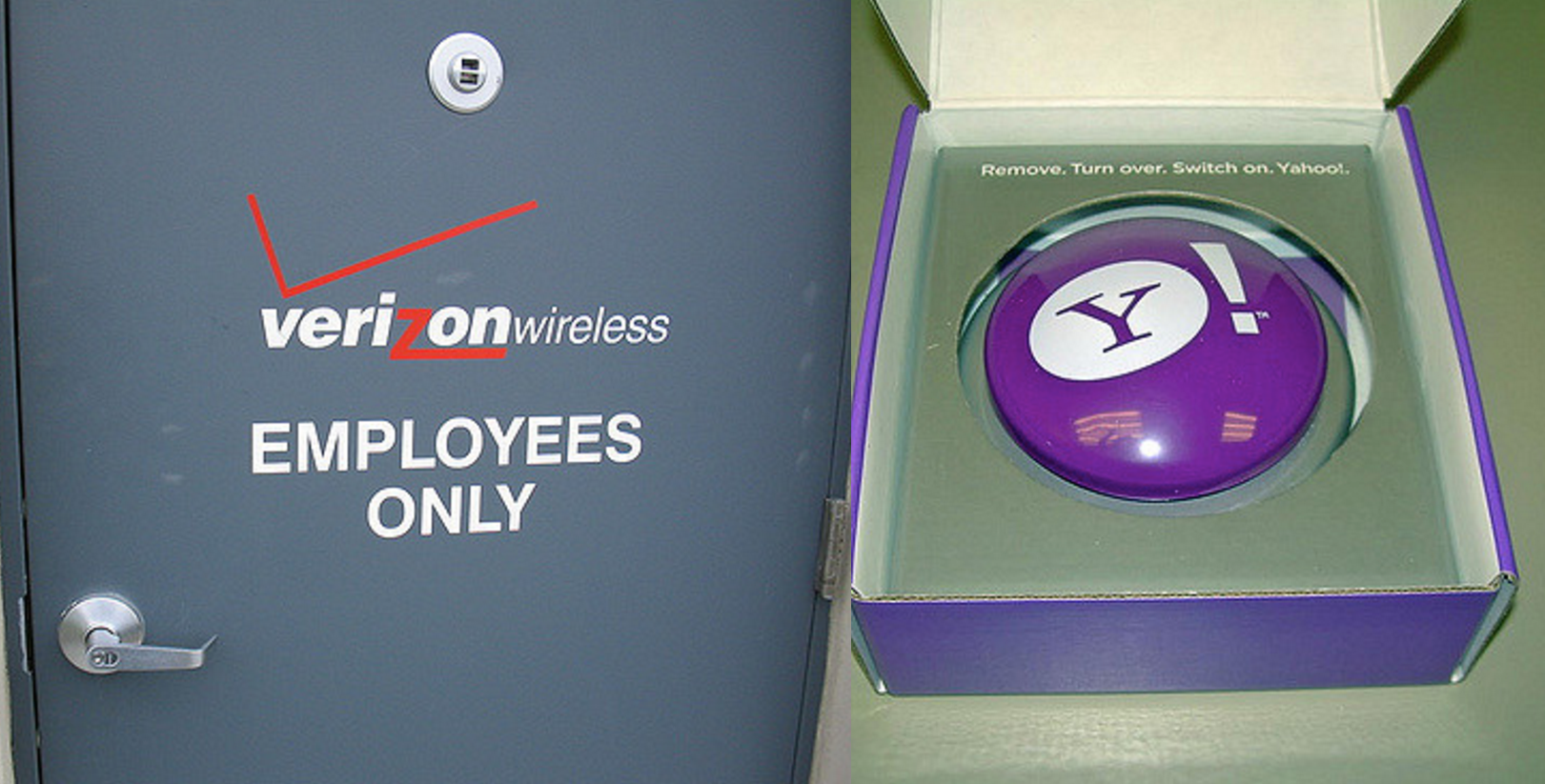Earlier this month, newly confirmed Homeland Security Secretary John Kelly told a Congressional committee that one of the possible forms of “extreme vetting” for visitors to the U.S. could include requiring them to hand over their login information for websites they visit. Today, a coalition made up of human rights organizations, consumer advocates, and the tech industry penned an open letter to Kelly, calling on DHS to not go down this path. [More]
privacy

Verizon Revises Deal To Buy Yahoo At $350M Discount
If you found out after you got engaged that your soon-to-be better half had done something that made you question the impending union, what would you do — Cancel the wedding? Move the reception from the country club to your cousin’s backyard? If you’re Verizon and your betrothed is the data-breached Yahoo, you ask for a $350 million discount. [More]

Dash Cams: Coming To A Dashboard Near You
You’re driving calmly along when, suddenly, a small truck sideswipes your passenger door, taking your sideview mirror with it. Your heart is pounding and you both stop, whereupon the other driver starts shouting that you swerved into his lane—when you know for a fact that you did no such thing. Now it’s just your word against his. Anticipating the headache of filing a police report and arguing over the insurance claim, you think, “If only I had a video!” [More]

FBI Attorney: Tech Companies Are Helping Dumb Criminals By Providing Quality Encryption
Much of the debate about encrypted devices and messaging services has been centered on more sophisticated criminal or terrorist activities, where the people involved are actively searching out ways to avoid detection by law enforcement. However, the FBI’s top attorney contends that tech companies may be inadvertently giving dimwitted crooks a leg up by making quality encryption so widely available. [More]

Have Your Devices Or Accounts Been Searched At The Border?
When entering the United States, have agents taken away your computer or other devices, or have they demanded social media passwords? The Electronic Frontier Foundation is gathering stories from people who have had to surrender their devices or their social media account information at the border when it’s not clear what the feds are doing with this information. [More]

Police Charge Arson Suspect Based On Records From His Pacemaker
How would you weigh the choice to have a pacemaker implanted if you knew that information from the device could be used against you in a criminal case? A man in Ohio is having his own cardiac rhythm used against him as he faces charges of aggravated arson and insurance fraud. This week, he pleaded not guilty to those charges. [More]

House Passes Bill Requiring Warrants For Searching Older Emails
The House of Representatives has unanimously passed a second attempt at new legislation that would update existing federal laws to require that law enforcement obtain a warrant in order to remotely search files that are older than six months. [More]

Vizio To Pay $2.2 Million For Watching TV Watchers Without Telling Them
There is a new truism for our era: If something can connect to the internet, it collects data. That’s true for everything from wearable fitness trackers to “smart” washing machines. But one TV company went farther than most, in collecting, aggregating, and selling your data, and now it’s in hot water with the Federal Trade Commission. [More]

Cable & Phone Industries Tell Congress To Reverse New Internet Privacy Rule
Last fall, the FCC approved a new rule detailing internet service providers can and can’t gather and use your information. The affected industries cried “unfair!” and now, with a new business-friendly FCC Chairman and White House, they are calling on Congress to make this pesky privacy rule go away. [More]

5 Things We’ve Learned About How Companies Track You Online And Off
Is there an ad that seems to be following you everywhere? Perhaps you browsed for new sneakers in a slow moment at work a week ago, and now you see ads for them on every site you view on your phone? Or maybe you clicked an ad on Facebook, and now that company’s product seems to be stalking you around the internet, asking you to buy it in every sidebar ad you see. [More]

Court Declines To Rehear Appeal, Agrees Microsoft Can’t Be Forced To Turn Over Email Stored Overseas
Back in July, a federal appeals court took Microsoft’s side in a case over a contentious question: if you’re a U.S. company, storing a customer’s data on a server in another country, are you obligated to turn over all that data as part of a search warrant? Microsoft said no, and many years later, it appears that at the end of the appeals process, the court once and for all agrees. [More]

Should Microsoft Be Allowed To Tells Its Users When Government Searches Their Data?
If the police serve a search warrant on your home, you know, but if law enforcement searches your cloud-stored files, you’ll probably have no idea — and companies like Microsoft are currently forbidden from telling you. That’s why the tech giant is suing the Justice Department, but can Microsoft even bring this lawsuit? [More]

Court: No, You Don’t Have a Reasonable Expectation Of Privacy With Your PSN Account
How do you communicate with most of the folks in your life, these days? Is it face-to-face, or is it digital communication over someone else’s private service? If it’s the latter, there’s a recent court ruling from a federal court in Kansas that should remind you about where you should — and shouldn’t — reasonably expect your data to remain private. [More]

Samsung “Smart” Camera Is Ridiculously Hackable
A security camera in your house, that you can access remotely, might seem like a good idea at first. You can log into it from anywhere, to see what’s going on and if it really was the cat who opened your kitchen cabinets every day last week. But the problem with a thing you can access remotely is that a sufficiently determined bad actor can, too. And sometimes it doesn’t even take much determination to do. [More]

Reminder: If Your Password Is “123456,” Change It
While one might think that there cannot possibly still be anyone out there who would use incredibly easy-to-guess passwords like, for example, “123456,” one would be wrong: according to a new study, that’s still the most popular password in the world. Sigh. [More]





